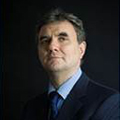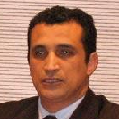
The Conclusions of the 2016 NATO Warsaw Summit in a Transformed Mediterranean Region
OCP Policy Center, Rabat
This year’s NATO summit is taking place in a context of changing security environment and the emergence of new hybrid threats. This makes this summit a landmark event, especially considering the strong ongoing debate between Southern and Eastern European countries regarding the Alliance’s current and future strategic priorities. Member countries will try in Warsaw to prevent a split in the alliance and to reconcile the interests of the Eastern and southern European member states to adapt to the changing security landscape and to be able to tackle different threats in a proactive and efficient manner.
Therefore, some key issues are likely to dominate the agenda of the NATO Warsaw summit: The current situation in Eastern Europe in general and the Ukraine/Russia situation in particular, the implications of the Middle East’s ongoing conflicts, a possible reform of the NATO partnership philosophy and policy, the subject of NATO enlargement and the Future Nuclear Strategy of the Alliance.
In this context, what are the implications of the Warsaw summit for a Mediterranean region that is deeply transforming in the light of the changing regional and global geopolitical landscape?
To shed light on some possible answers, The OCP Policy Center and the NATO Defense College Foundation will be organizing a roundtable to discuss the conclusions of the Warsaw summit. This will enable better understanding of the decisions/resolutions and the implications that they might have on the future of the Mediterranean.
Keep me informed
-

Alessandro Politi
Director of the NATO Defense College Foundation
Alessandro Politi is a global political and strategic analyst with 30 years of experience. Director of the NATO Defense College Foundation, the only NATO-affiliated NGO think tank. He teaches geopolitics and intelligence at the SIOI. He teaches conflict management, crisis, peace-making and analysis at different governmental centres. He was senior researcher for the Italian MoD (CeMiSS-Centre for Military and Strategic Studies) regarding the strategic monitoring of Latin America. He also created and led the Global Outlook project within CeMiSS, in Italian and English (third edition, 2015). He has directed the CEMRES research on CBMs in the framework of the 5+5 Defence Initiative, presenting the conclusions to the Ministers in Granada. He has published 25 books on strategic and security matters.
-

Rachid EL Houdaïgui
Senior Fellow at OCP Policy Center & Professor of International Relations at Abdelmalek Essaadi University, Tangier's Law Faculty
Rachid EL Houdaïgui is professor of International Relations at Abdelmalek Essaadi University, Tangier's Law Faculty and Senior Fellow at the OCP Policy Center. He is also professor at Royal College of Advanced Military Studies (Kenitra) and professor invited at Cergy-Pontoise University (Paris),Cadix University (Spain) and at La Sagesse University (Beirut, Lebanon). Mr. EL Houdaïgui is the author of numerous books and articles dealing with International relations and geopolitics: the Mediterranean, North Africa and the Arab world. Also, he is co-director of the Moroccan-Spanish review “Peace and International Security” and in charge of the Observatory of Mediterranean Studies (Abdelmalek Essaadi University).










.png)